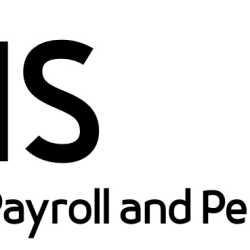Pension Fund Administrators (PFAs) manage and invest pension funds on behalf of employees who are registered under the Contributory Pension Scheme (CPS). This system, regulated by the National Pension Commission (PenCom), aims to provide workers with financial security after retirement.
The Contributory Pension Scheme requires pension funds to be privately managed exclusively by licensed Pension Fund Administrators (PFA). The main functions of the PFA are to open Retirement Savings Account (RSA) for employees; invest and manage pension fund assets; payment of retirement benefits and accounting for all transactions relating to the pension funds under their management.
PFAs are crucial in managing retirement funds, offering investment solutions, and ensuring retirees receive adequate benefits. Whether in Nigeria or other countries with similar pension schemes, PFAs operate within a regulated environment to safeguard pension contributions and help individuals plan for a financially secure retirement.
PenCom considers applications for license to operate as a PFA from entities that fulfil the requirements as enshrined in Section 60 of the PRA 2014. Prior to the issuance of an operating license, the PFA must be a limited liability company whose sole object is the management of pension fund assets. The PFA must also satisfy the Commission that it has the professional capacity to manage pension funds and administer retirement benefits.
Functions of Pension Fund Administrators (PFAs)
- Account Management: PFAs manage individual Retirement Savings Accounts (RSAs) for employees, where monthly contributions are deposited by both the employee and the employer.
- Investment of Pension Funds: PFAs are responsible for investing the pension contributions in various financial instruments like government securities, bonds, stocks, and real estate, following guidelines provided by PenCom.
- Record Keeping and Reporting: PFAs keep records of all transactions related to the pension funds, providing periodic reports to the account holders and the regulatory body.
- Payout of Retirement Benefits: Upon retirement, PFAs facilitate the disbursement of pension benefits, either through programmed withdrawal or annuity, depending on the retiree’s preference.
- Advisory Services: PFAs provide advisory services to contributors on retirement planning and investment strategies to maximize pension benefits.

How the Pension Scheme Works
- The Contributory Pension Scheme (CPS) is mandatory for both public and private sector employees who have a minimum of three employees in their organization.
- Contributions: Employers contribute 10% of an employee’s monthly salary, while employees contribute 8%, totaling 18% of the employee’s monthly salary deposited into the RSA.
- Multiple Investment Portfolios: PFAs offer different investment portfolios such as conservative, balanced, or aggressive, depending on the contributor’s risk appetite and age.

Regulatory Framework
The National Pension Commission (PenCom) regulates PFAs and provides the following mandates:
- Ensuring transparency in the management of pension funds.
- Issuing licenses to PFAs to operate.
- Setting guidelines on investment choices to ensure contributors’ funds are secured and prudently invested.
- PenCom also regulates the activities of Pension Fund Custodians (PFCs), which hold the pension assets on behalf of PFAs.
Prominent PFAs in Nigeria
- ARM Pensions
- Stanbic IBTC Pension Managers
- Leadway Pensure PFA
- Fidelity Pension Managers
- AXA Mansard Pensions
- Premium Pension Limited
- Crusader Sterling Pensions
- NLPC Pension Fund Administrators
- FCMB Pensions Limited
- First Guarantee Pension Limited
Choosing the Right PFA
The performance of a PFA can significantly impact the value of retirement savings. Contributors should consider historical performance, fees, and customer service when selecting a PFA.
Switching PFAs
If a contributor is dissatisfied with their current PFA, they can switch PFAs. PenCom provides guidelines on how to transfer RSAs between PFAs.
Retirement and Withdrawal Options
- Programmed Withdrawal: A retiree can withdraw their savings over a specific period based on expected life span.
- Annuity: A retiree can purchase an annuity from an insurance company for a guaranteed lifetime income.




